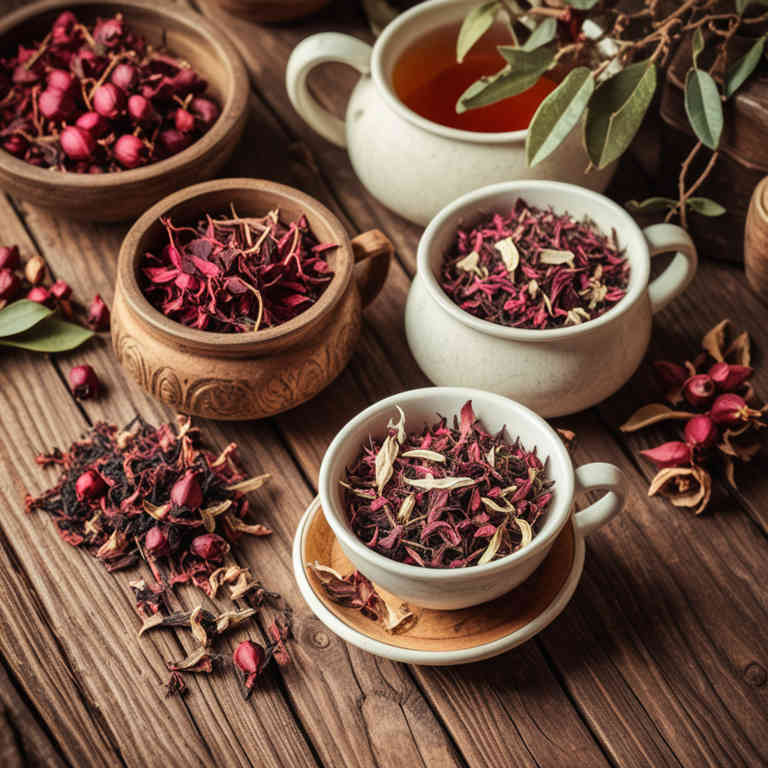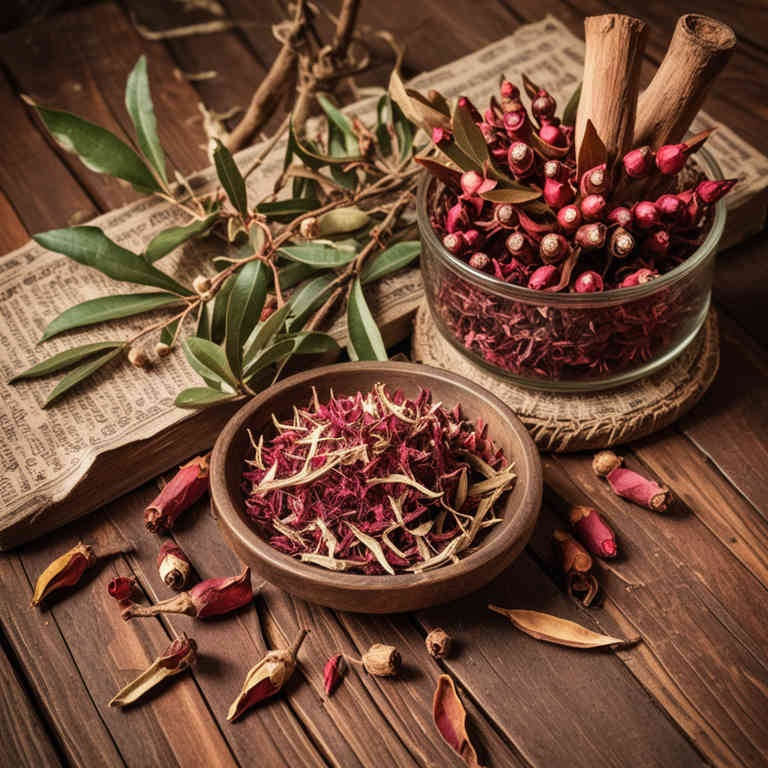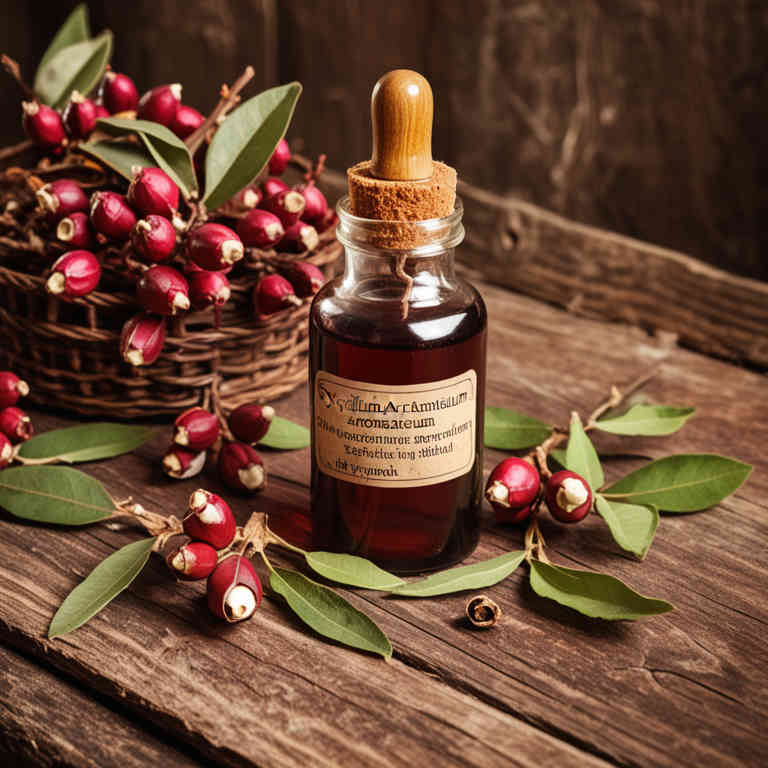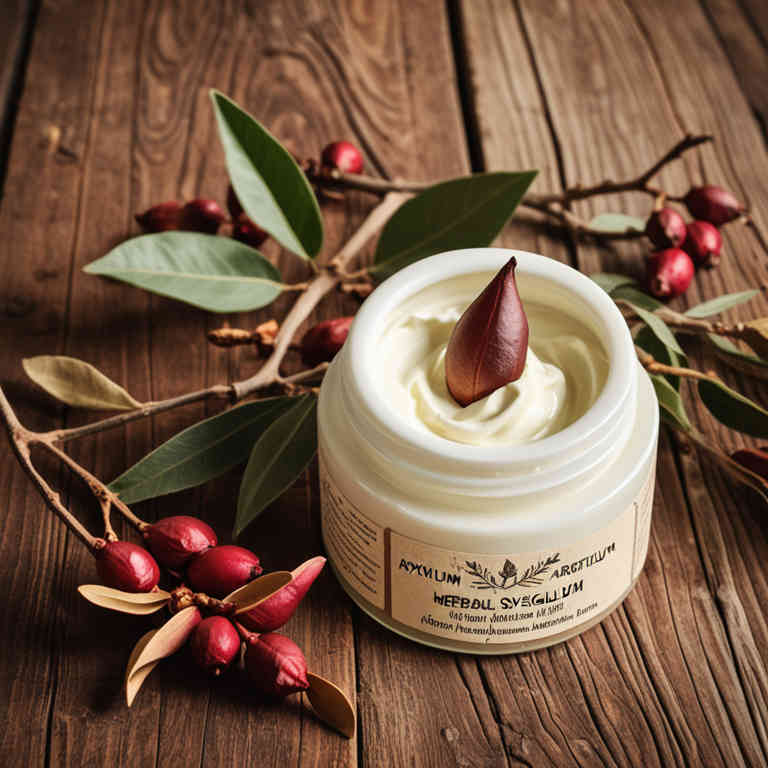10 Best Syzygium Aromaticum Preparations

The best medicinal preparations of Syzygium aromaticum are teas, decoctions, tinctures, essential oils, and syrups, each offering unique benefits for health.
Teas made from dried cloves are commonly used to aid digestion and relieve toothache.
Decoctions involve boiling the herb to extract its active compounds, often used for respiratory conditions.
Tinctures provide a concentrated form of the herb, suitable for topical or internal use.
Essential oils derived from Syzygium aromaticum are valued for their aromatic and therapeutic properties, while syrups are popular for their soothing effects on coughs and sore throats.
Below there's a list of the 10 best herbal preparations of syzygium aromaticum for medicinal purposes.
1. Teas
Syzygium aromaticum teas is commonly used to treat digestive issues, respiratory conditions, and stress-related ailments.
This herbal preparation is widely recognized for its ability to soothe gastrointestinal discomfort, alleviate symptoms of colds and coughs, and promote relaxation. The most common medicinal uses include treating indigestion, nausea, bronchitis, and anxiety. The bioactive constituents responsible for these effects include eugenol, cineole, and flavonoids, which possess antimicrobial, anti-inflammatory, and antioxidant properties.
These compounds contribute to the plant's ability to support immune function and reduce inflammation in the body.

2. Decoctions
Syzygium aromaticum decoctions is commonly used to treat respiratory and digestive ailments, as well as to promote relaxation and improve sleep.
This herbal preparation is often employed for conditions such as coughs, bronchitis, indigestion, and stress-related disorders. The bioactive constituents responsible for its medicinal properties include essential oils like eugenol, cineole, and methyl eugenol, as well as flavonoids and tannins. These compounds possess antimicrobial, anti-inflammatory, and analgesic effects.
Additionally, the decoctions may aid in reducing nausea and enhancing mental clarity due to their soothing and calming properties.

3. Tinctures
Syzygium aromaticum tinctures is commonly used to treat respiratory and digestive ailments, as well as to alleviate stress and anxiety.
These tinctures are often employed for conditions such as bronchitis, asthma, indigestion, and nausea. They are also used in aromatherapy to promote relaxation and improve mood. The bioactive constituents responsible for these effects include eugenol, cineole, and flavonoids, which possess antimicrobial, anti-inflammatory, and antioxidant properties.
Additionally, the tinctures may help in reducing pain and inflammation due to their analgesic and antispasmodic effects.

5. Syrups
Syzygium aromaticum syrups is commonly used to relieve symptoms of respiratory conditions such as coughs, sore throats, and bronchitis.
These syrups are also used to treat digestive issues like nausea and indigestion, and they may help alleviate stress and anxiety due to their calming effects. The most common medicinal uses include soothing respiratory tract irritation, reducing inflammation, and acting as a natural remedy for colds and flu. The bioactive constituents responsible for these effects include eugenol, cineole, and flavonoids, which have antimicrobial, anti-inflammatory, and antioxidant properties.
These compounds work together to provide the therapeutic benefits associated with Syzygium aromaticum syrups.

6. Capsules
Syzygium aromaticum capsules is commonly used to alleviate digestive issues, reduce inflammation, and support respiratory health.
These capsules are often employed to treat ailments such as indigestion, nausea, coughs, and sore throats. The primary bioactive constituents include eugenol, cineole, and flavonoids, which contribute to its anti-inflammatory, antimicrobial, and analgesic properties. Additionally, the essential oils in the capsules may help in reducing stress and improving mood.
Syzygium aromaticum capsules are valued for their natural therapeutic effects and are widely used in traditional and modern herbal medicine.

7. Lozenges
Syzygium aromaticum lozenges is commonly used to alleviate symptoms of respiratory conditions such as sore throat, cough, and bronchitis.
These lozenges are also used to reduce inflammation and soothe irritation in the throat, making them popular for treating colds and flu. The most common medicinal uses include relief from sore throat, cough, and inflammation of the respiratory tract. The bioactive constituents responsible for these effects include eugenol, cineole, and camphor, which have antimicrobial, anti-inflammatory, and analgesic properties.
These compounds work together to provide soothing and therapeutic benefits to the throat and respiratory system.

8. Oils
Syzygium aromaticum oils is commonly used to treat respiratory conditions, digestive issues, and skin disorders due to its antimicrobial and anti-inflammatory properties.
The most common medicinal uses include alleviating symptoms of colds, coughs, bronchitis, and nausea, as well as promoting wound healing and reducing inflammation. These oils are also used in aromatherapy to relieve stress and improve mood. The bioactive constituents responsible for these effects include eugenol, cineol, and myrcene, which exhibit antimicrobial, antioxidant, and analgesic activities.
Additionally, the presence of flavonoids and terpenoids contributes to its therapeutic benefits.

9. Creams
Syzygium aromaticum creams is commonly used to treat skin conditions and provide relief from inflammation and pain.
These creams are often applied for their antimicrobial, anti-inflammatory, and analgesic properties. The most common medicinal uses include treating acne, eczema, fungal infections, and minor burns. They are also used to alleviate symptoms of arthritis and muscle pain.
The bioactive constituents responsible for these effects include eugenol, cineole, and various flavonoids, which exhibit antimicrobial, anti-inflammatory, and antioxidant activities.

10. Linctuses
Syzygium aromaticum linctuses is commonly used to alleviate respiratory conditions such as coughs, bronchitis, and sore throats due to its soothing and expectorant properties.
The most common medicinal uses of this preparation include treating symptoms of respiratory tract infections, reducing irritation in the throat, and easing difficulty in breathing. It is also used to relieve mild inflammation and as a remedy for persistent coughs. The bioactive constituents responsible for its medicinal properties include eugenol, cineole, and camphor, which have antimicrobial, anti-inflammatory, and bronchodilatory effects.
These compounds contribute to its effectiveness in soothing the respiratory system and reducing coughing.
